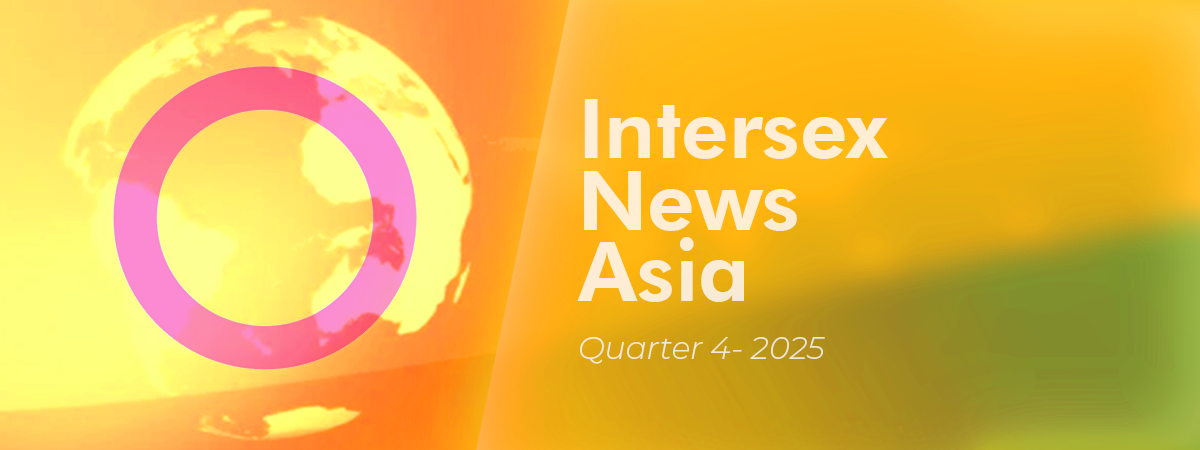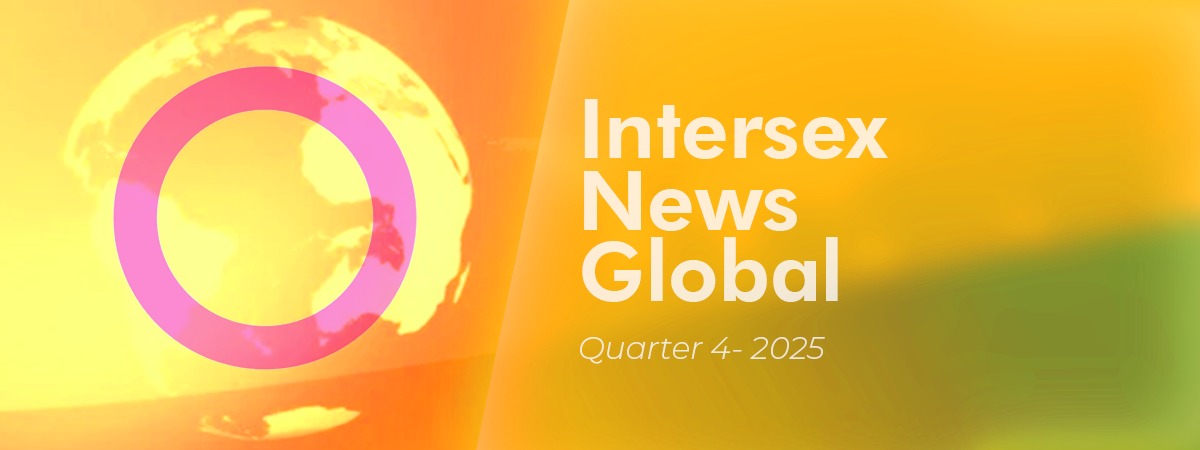Last month, at the heart of the 69th Session of the UN Commission on the Status of Women, Intersex Asia and Intersex Philippines carved a transformative space for Asian intersex communities—one that transcended policy debates and centered humanity. The side event “Affirming Care as a Human Right: Access to Medicine, Life-Saving Care, and Dignity for Intersex and CAH Communities in the Philippines” was not merely a discussion; it was a major shift in how we frame dignity, love, and justice for intersex individuals and those living with Congenital Adrenal Hyperplasia (CAH).
A Platform for the Unheard
For such a long time, intersex communities in Asia have been navigating healthcare systems that want to erase their bodily autonomy, stigmatize their existence, and deny life-saving care. Jeff Cagandahan, Director of Intersex Philippines, framed this sad reality: “Our suffering stems from the condition itself, but from systemic barriers to healthcare”. His words—rooted in his lived experience working with intersex people with CAH—echoed the silent struggles of many families with intersex children across the country, where even essential medicines remain inaccessible.
This event was historic because it centered intersectional solidarity, weaving together the struggles of intersex individuals, women, children, and disabled communities. By aligning with the Beijing+30 platform, Intersex Asia again highlights that bodily autonomy is not a niche issue but a cornerstone of gender justice.

Five Pillars of Transformation
The dialogue revealed important lessons that redefine and enhance the future advocacy journey for Asia’s intersex communities:
- Medicine as a Mirror of Justice
- The scarcity of CAH medications in countries like the Philippines is a major challenge. Advocacy for national health programs to include these medicines is not just policy work; it is an act of love, ensuring no child is left behind.
- Policy as a Practice of Care
- Legal frameworks remain hollow without firm implementation. The call for a collective approach—uniting parents, healthcare workers, and civil society—is about building ecosystems where care is not an exception but a birthright, not only for CAH but also other orphan medical conditions.
- Intersectionality Collaboration as Advocacy
- The event called for intersectional activism. Intersex Asia highlighted that stigma against intersex bodies is intertwined with broader human rights efforts, and collaborating with feminist, disability, and orphan disease movements..etc, is the only way forward to advance human rights and health equity.
- Mothers as Movement-Builders
- A powerful result showed the role of maternal love in reshaping healthcare. Parents are not just caregivers—they are frontline advocates dissolving shame and demanding accountability. And support to parents should extend beyond financial and medical. The Cross-Movement Building Officer shared how her mother’s compassion as a pediatrician became a blueprint for inclusive care and a better understanding of the community’s needs.
- Healing as a Collective Journey
A Call Rooted in Love
Jeff’s speech was a rallying cry: “This work is not just about access to medicines. It is about affirming that healthcare as a human right should be realized.” His appeal to governments, allies, and global health bodies was not a plea for charity but a demand for co-creation. Intersex Asia’s work with partners like CAHSAPI, CLAN and Cancer Warriors Foundation exemplifies how regional collaboration turns despair into action.
For Asia’s intersex communities, this UN event was a beacon. It signaled that their lives are not peripheral to global health agendas but central to them. The dialogue transformed statistics into stories, policymakers into allies, and grief into collective power. This is not the end. This is the awakening of a movement where intersex lives are non-negotiable, where care is everyone’s birthright, and where Asia’s marginalized communities speak their voices!
—————–
Read the full statement of Jeff Cagandahan below:
Honored guests, colleagues, and fellow advocates Mabuhay!
I’m beyond grateful to be here with all of you today as the co-founder of Intersex Philippines, a proud board member of Intersex Asia, and a person living with Congenital Adrenal Hyperplasia (CAH).
For too long, children and adults with CAH in the Philippines and across Asia have faced preventable sufferings—suffering that stems not from the condition itself but from systemic barriers to healthcare. Today, I am here not just as an advocate but as someone who has lived this reality. I speak for every parent who has held their child through an adrenal crisis, for every individual, who has struggled to access the life-saving medications that should be a basic right not a privilege.
In the Philippines, and many parts of Asia access to essential medicines like hydrocortisone and fludrocortisone remains inconsistent, unaffordable, or simply unavailable. This is not just an inconvenience; it is a life-or-death issue. Without these medications adrenal crises occur—leading to unnecessary hospitalizations, complications, and in too many cases, premature deaths.
Through our work at Intersex Philippines, Intersex Asia, and CAHSAPI, we have spoken with families who have lost loved ones, because treatment was out of reach. We have seen children’s lives appended, due to financial barriers, that should never stand between a person, and the care they need.
Yet, despite these challenges, we also see hope.
Through our current collaboration with CAHSAPI, CLAN, Cancer Warriors Foundation, Philippine Society of Pediatric Metabolism and Endocrinology through Dr. Jedeane Aragon and the broader regional collaboration of Intersex Asia, we are actively working to bridge the gaps between movements and the care our communities desperately need. This means:
● Advocating for policy changes to ensure that hydrocortisone, fludrocortisone, and emergency adrenal crisis kits are included in national health programs, including those associated with New Born Screening.
● Partnering with orphan disease organizations to strengthen advocacy for CAH
● Collaborating with healthcare professionals to improve medical training and awareness, ensuring that CAH management is accessible and affirming of life.
● Engaging with affected families to provide support, raise awareness, and amplify their voices in decision-making spaces.
This work is not just about access to medicines. It is about affirming that healthcare as a human right should be realized. Access to technologies associated with diagnosis, effective monitoring such as 17OHP tests to name one example, as well as compassionate health care providers aware of this condition and willing to help these communities in times of medical emergencies. Our call is centred in ensuring dignity access to basic life-sustaining treatments, bodily integrity, and access to care that respects the lived experiences of those it serves.
We cannot do this alone. We call on governments, allies, feminist movements, children’s organizations, pharmaceutical sector, and global health bodies to take immediate action and walk with us, in helping us identifying ways, to overcome these systemic barriers by:
- Make life-saving medications affordable and accessible—no more stock shortages, reimbursement mazes, no more price barriers.
- Ensure newborn screening and early intervention programs integrate emergency kits in newly diagnosed CAH infants, so that no child is left undiagnosed or improperly treated in case of an adrenal crisis emergency.
- Recognize CAH medical needs in access to medicines, as urgent public health priorities, integrating them into universal healthcare systems.
To our allies in the healthcare sector—we hope to work collaboratively to identify ways our communities can see in your efforts a life-affirming partnership in the shared goal of saving CAH children’s lives. While we hope to avoid centering other debates about identity in social issues surrounding gender and bodily anatomy we make a plea for urgent, affirming, and equitable healthcare solutions, for all persons living with CAH including male, female and intersex persons.
To the families here today particularly the voices of mothers—your voices matter. Your advocacy is powerful. Together, we can illuminate the path for the change we so desperately need.
I stand here today because I have been able to access the right care. While I experience daily, the limitations of living with CAH, I have seen what is possible when healthcare is accessible, universal, equitable, and affirming. But too many in our communities are still waiting for that chance.
We cannot afford to wait any longer. Lives are at stake. The time to act is now. Leave no child behind.
Thank you, Maraming Salamat po!




